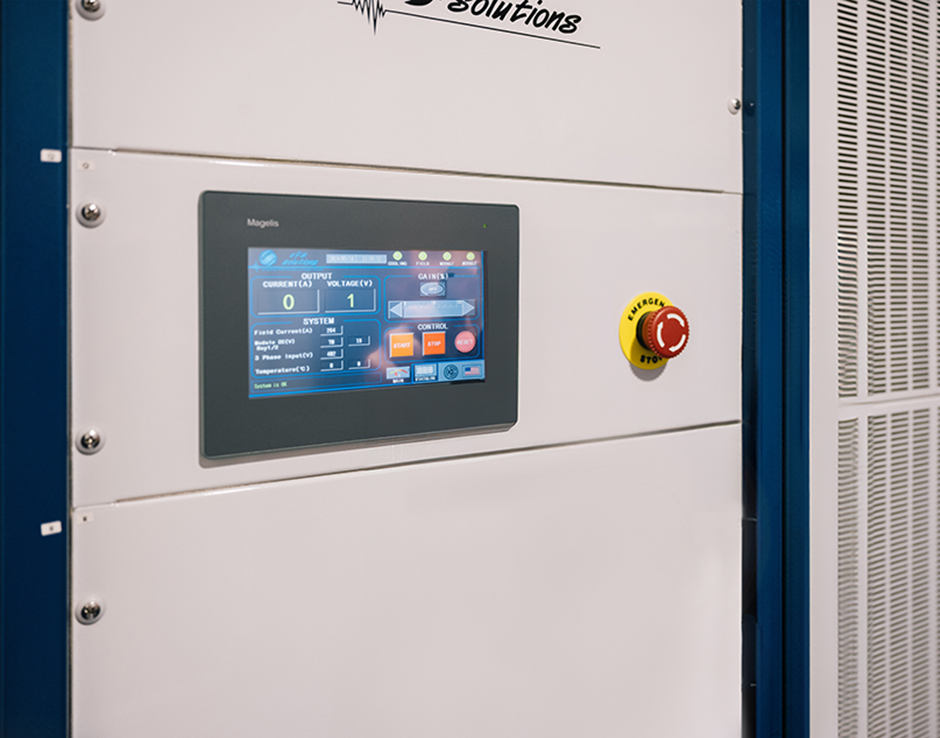UL 2054

IMPORTANT IN BRIEF
UL 2054
UL 2054 is an important safety standard for batteries that defines requirements for the performance and safety of batteries in various applications. It was developed by Underwriters Laboratories (UL) and ensures that batteries undergo rigorous testing to minimise potential risks such as short circuits, overcharging or mechanical stress. UL 2054 certification with the corresponding test mark ensures the safety and reliability of batteries in household and commercial products.
Batteryuniversity is an independent and recognised test laboratory that specialises in the safety testing and certification of batteries. We offer all required tests according to UL 2054: from short circuit and overcharge tests to mechanical load tests. Our test procedures ensure that your batteries fulfil the required safety standards and can be approved for use in various applications. In close coordination with UL, we can provide the necessary certification.

Why we are the ideal partner for your UL 2054 certification
Certified test laboratory
As an independent and specialised test laboratory, we offer you comprehensive testing in accordance with UL 2054, in close coordination with UL. This certification ensures that your batteries meet the strict safety requirements for household and commercial applications and receive the recognised test mark (UL listed or recognised).
Years of expertise
We have specialised in battery safety testing for over 15 years. Our in-depth expertise in the field of battery testing ensures that your products reliably fulfil UL 2054 requirements and can be brought to market safely.
Comprehensive test coverage
Our laboratory covers all the necessary tests for UL 2054 certification - from short-circuit tests and mechanical load tests to overcharge and forced discharge tests. This means you receive all the necessary tests in one place, efficiently and in accordance with the applicable standard.
Rapid market launch
Thanks to efficient testing processes, you quickly receive meaningful test results and rapid certification. This enables you to access the market smoothly and reduces potential delays in your supply chain.
Modern laboratory technologies
Our test laboratory is equipped with high-precision measurement technology and modern test systems. This enables us to ensure that your batteries are tested under realistic conditions and that all relevant safety standards are met.
Customised test procedures
Every battery has its own specific requirements. We design our tests individually, customised to the areas of application and technical properties of your batteries. In this way, we ensure that your products are tested and certified in accordance with standards.

Why UL 2054 is crucial for battery safety
UL 2054 is an essential safety standard for rechargeable and non-rechargeable batteries, ensuring that they will function reliably under normal and abnormal operating conditions. Batteries that do not meet the stringent safety requirements can cause potential hazards such as overheating, fires or explosions. To minimise such risks, UL 2054 specifies detailed test procedures tailored to the specific challenges of batteries in household and commercial applications.
By complying with UL 2054, manufacturers can not only ensure the safety of their products, but also strengthen the trust of end customers, authorities and business partners. A certified battery is a clear sign of quality and fulfils the safety guidelines required in many markets.
How to obtain your UL 2054 certification
The UL 2054 certification process consists of several phases to ensure that batteries meet strict safety criteria. In the first step, our experts analyse the technical specifications of your battery and determine which tests are required for compliance with UL 2054. The battery then undergoes various tests, including:
Mechanical tests
-
Vibration
-
Case
-
Impact
Abuse tests
-
Short circuit
-
Overloaded
After successful testing, the results are evaluated based on the criteria defined in the UL 2054 standard. We then prepare a detailed test report with UL, which documents the test results and serves as official proof of compliance with UL 2054. Manufacturers can label their batteries accordingly with the UL test mark and fulfil the market requirements. We continue to support you even after certification: if regulatory requirements change, we will inform you in good time and help you to make the necessary adjustments to continue to use the test mark. With our expertise, we enable you to achieve UL 2054 certification quickly and smoothly, for maximum safety and fast market access.
FREQUENTLY ASKED QUESTIONS & ANSWERS
UL 2054 specifies safety requirements for portable primary and secondary batteries used in household and commercial applications. It includes tests to prevent overheating, short circuits, explosions and chemical leakage under normal and abnormal operating conditions. In addition, batteries must fulfil certain labelling requirements to ensure traceability.
UL 2054 is a safety standard for complete battery packs and applies to both rechargeable and non-rechargeable batteries in consumer and industrial applications. It focuses on comprehensive safety tests, including short circuit, overcharge and abuse tests, to minimise risks such as fire, explosion or chemical leakage. IEC 62133-2, on the other hand, applies exclusively to rechargeable lithium-ion cells and battery packs. It specifies safety requirements for individual cells and complete battery packs that are used in portable devices. While UL 2054 is primarily relevant for the North American market, IEC 62133-2 is used worldwide as a test basis for the safety assessment of lithium-ion batteries. A key difference is that IEC 62133-2 is a prerequisite for many international certifications, while UL 2054 is often required for the US market.
UL 2054 prescribes a large number of safety tests to ensure that batteries function reliably even under extreme conditions. These include electrical tests such as short-circuit tests at different temperatures as well as abnormal charging and overcharging tests to analyse the behaviour of the battery in the event of malfunctions. Mechanical tests such as drop, impact and vibration tests analyse the resistance of the samples to physical stress. In addition, UL 2054 includes abuse tests to evaluate the behaviour of the battery under faulty or improper conditions. The samples undergo extensive tests. Fire resistance tests analyse how batteries react to direct exposure to flames. These comprehensive tests ensure that batteries comply with the standard and can be used safely in various applications.
UL 2054 applies to a variety of battery types, including lithium-ion, nickel-metal hydride (NiMH) and lead-acid batteries. It covers both individual cells and complete battery packs that are used in consumer and industrial products.
UL 2054 certification confirms the safety and quality of a battery and facilitates access to international markets, particularly in North America. It minimises liability risks, strengthens the trust of consumers and business partners and ensures that the tested batteries function safely under various environmental and operating conditions.
We offer comprehensive UL 2054 testing with state-of-the-art laboratory technology and decades of experience in battery testing. Our test laboratory covers all required tests and guarantees fast, standard-compliant certification. Thanks to our efficient processes, you receive precise test results that enable your products to be brought to market quickly.
INFORMATION ABOUT THE AUTHOR
Alexander Roth
Alexander Roth is head of the test laboratory at Batteryuniversity and an expert in the testing and certification of lithium-ion batteries.







